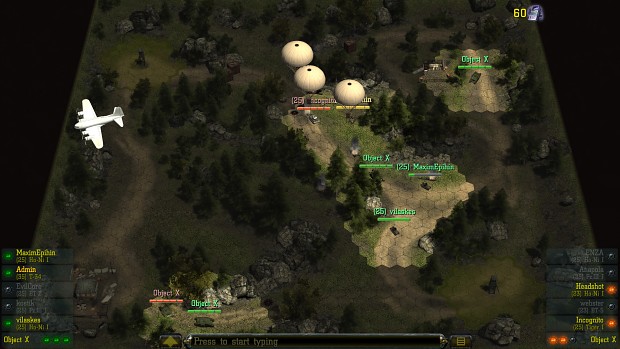

The British decided on 7 February 1948 to support the annexation of the Arab part of Palestine by Jordan. The Arab League began to believe that the Palestinian Arabs, reinforced by the Arab Liberation Army, could put an end to partition. The situation for those who dwelt in the Jewish settlements in the highly isolated Negev and north of Galilee was more critical. Almost all of Haganah's armoured vehicles had been destroyed, the blockade was in full operation, and hundreds of Haganah members who had tried to bring supplies into the city were killed. By March, al-Husayni's tactic had paid off. To counter this, the Yishuv authorities tried to supply the city using convoys of up to 100 armoured vehicles, but the operation became more and more impractical as the number of casualties in the relief convoys surged.

Having recruited a few thousand volunteers, al-Husayni organised the blockade of the 100,000 Jewish residents of Jerusalem. The Army of the Holy War, under the command of Abd al-Qadir al-Husayni, came from Egypt with several hundred men. They consolidated their presence in Galilee and Samaria. A number of Arab Liberation Army regiments infiltrated into Palestine, each active in a variety of distinct sectors around the different coastal towns. During this period, the Jewish and Arab communities under the British Mandate clashed with only light arms, while the British intervened only on an occasional basis during their withdrawal.įrom January onwards, operations became increasingly militarised. By the outbreak of the Israeli War for Independence in 1948, it consisted of over 2,000 men and women in three fighting brigades.įollowing the United Nations General Assembly vote for the Partition Plan for Palestine on 29 November 1947, the Jewish forces started to build and procure mobile armoured cars and supply trucks and to purchase and bring in tanks and a large number of half-tracks to prepare for the termination of the British Mandate and Israeli proclamation of statehood on. The Palmach was an elite fighting force of the Haganah, the underground army of the Yishuv (Jewish community) and had been established on. But in Israel, plans to import them began before the country was even formed, and rudimentary armoured cars and trucks were prepared in secret. The first armored tanks and vehicles in Israel were, like many other countries, imported or based on others' designs but eventually developed their own. The Arabs and the Israelis had to find their weapons through arms dealers or from any country that would supply them.

Before Israel gained independence in 1948, neither Israel nor the Arab nations surrounding it had many tanks.


 0 kommentar(er)
0 kommentar(er)
